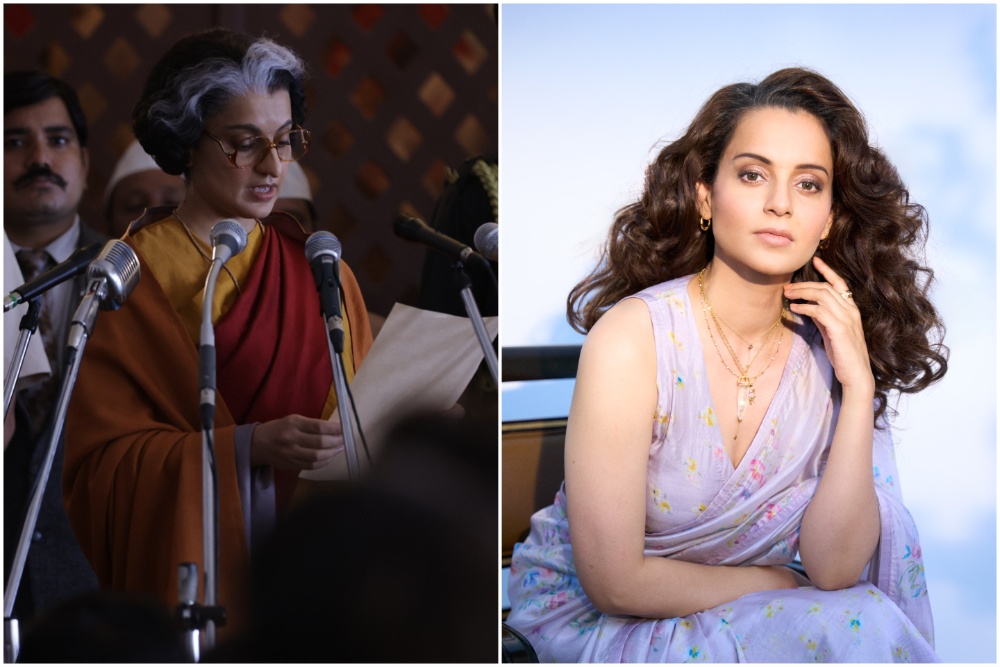Kangana Ranaut’s ‘Emergency’: A cinematic dive into India’s turbulent past
A bold exploration of a controversial era
Kangana Ranaut, the multifaceted Indian actor, filmmaker, and parliamentarian, is gearing up to release her latest project, “Emergency”. This film delves into one of the most contentious periods in India’s post-independence history, offering a nuanced portrayal of the 21-month state of emergency declared by Prime Minister Indira Gandhi from 1975 to 1977.
The emergency: A historical backdrop
The Emergency period was marked by sweeping changes in India’s political landscape. Prime Minister Indira Gandhi’s unilateral decision to declare a state of emergency granted her the authority to rule by decree, effectively suspending elections and civil liberties. This era saw widespread press censorship, restrictions on civil rights, and the imprisonment of political opponents. The government justified these extreme measures by citing threats to national security and economic instability. The Emergency concluded in March 1977 when Indira Gandhi called for fresh elections, leading to her defeat and the establishment of the first non-Congress national government since independence.
Kangana’s inspiration and vision
Born nearly a decade after these events, Kangana Ranaut felt a compelling need to bring this period to the screen. “I’m ’86 born, and people of my age, we’ve missed out on that ’70s emotion,” she reflects. Her interest in Indian politics and the evolution of the country’s constitution long predated her political career. A line from a biography of Indira Gandhi by cultural activist Pupul Jayakar deeply affected her and sparked the desire to make this film. “Jiddu Krishnamurti, her guru, friend, and guide, asked her to call an end to it. And she said something very interesting: ‘I feel as if I’m riding this ferocious, cruel beast, which I started to love riding initially, but now I don’t think I can get off of it’,” Ranaut recounts.
A Shakespearean tragedy on screen
Ranaut emphasizes that “Emergency” is not just a chronological retelling of events but a profound exploration of power and its consequences. “Her life was such a Shakespearean tragedy,” she says. “It’s not for us to judge or evaluate. It is what it is. When people see the film, they will realize that it is such an honest take on the Emergency, what led to it, and what eventually came of it.”
Navigating sensitive waters
Despite the sensitive nature of the subject and the fact that the Gandhi family is now in opposition, Ranaut is confident in the film’s reception. She reveals that a “large team of historians” who lived through the Emergency, including Indira Gandhi’s friends and those who were in opposition, have worked on the film. “Nobody can get offended by this kind of honesty,” she asserts.
Balancing multiple roles
“Emergency” marks Ranaut’s second directorial venture, following “Manikarnika: The Queen of Jhansi” (2019). In this film, she takes on multiple roles as lead actor, writer, director, and producer. “It’s just so consuming,” she says of her multifaceted involvement. “The only time I think I’ve seen that sort of engagement with anything is probably new parents. I’ve never seen that sort of engagement with anything.”
The political and cinematic juggle
Ranaut is also navigating her role as a member of parliament, representing the Mandi constituency in Himachal Pradesh. She finds herself stretched thin between her political responsibilities and her film commitments. “Being a parliamentarian is a very demanding job,” she admits. “Especially in my constituency, we’ve had floods, so I am all over the place. I have to go to Himachal and see to it that things are being taken care of.”
The demands of her political career have taken a toll on her film work. “My film work is suffering,” she confesses. “My projects are waiting. I’m not able to start my shoots. I’m waiting for more [parliamentary] sessions detail, like winter session, so I can adjust my dates.”
A journey marked by resilience
Ranaut’s journey in Bollywood has been marked by acclaimed performances in films such as “Gangster” (2006), “Fashion” (2008), and “Tanu Weds Manu” (2011). However, it was “Queen” (2013) that truly catapulted her to stardom and ushered in a new era of women-centric films in Bollywood. She followed this success with powerful performances in films like “Tanu Weds Manu Returns” (2015) and “Thalaivi” (2021).
Reflecting on her career, Ranaut acknowledges the significant shift that occurred with the success of “Queen”. “I was an oddball,” she recalls of her early career. “We had to slog a lot. We came in at a time where we were just downright rejected.”
Anticipation builds for ‘Emergency’
“Emergency” is set to release theatrically on Sept. 6. As the release date approaches, anticipation builds for this bold cinematic exploration of a pivotal moment in India’s history. For those eager to delve deeper into the film, you can watch the trailer here.
Kangana Ranaut’s commitment to both her political and cinematic roles showcases her resilience and dedication. As she continues to navigate these demanding paths, her work promises to leave a lasting impact on both the political and cultural landscapes of India.

 Italian
Italian







